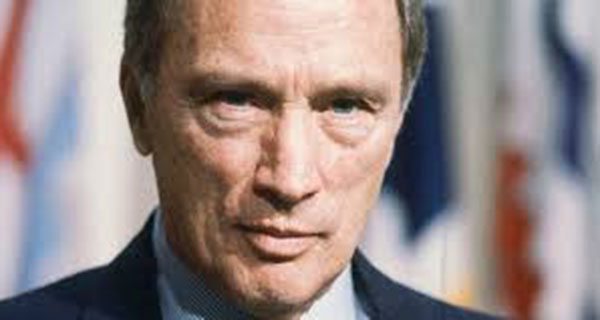 After 50 years, I still remember the moment. Shortly before 8 p.m. on April 6, 1968, Pierre Trudeau was declared winner of the federal Liberal Party’s leadership race, thereby positioning him to become the 15th prime minister of Canada two weeks later.
After 50 years, I still remember the moment. Shortly before 8 p.m. on April 6, 1968, Pierre Trudeau was declared winner of the federal Liberal Party’s leadership race, thereby positioning him to become the 15th prime minister of Canada two weeks later.
It had been a tense, riveting day for those of us glued to our black-and-white TV sets. Stretching over four ballots and more than seven hours, it seemed like an unending process. And there was an extra touch of drama, thanks to some delegates folding their voting cards and thus jamming the newfangled IBM tallying machines.
At one level, we knew Trudeau was destined to win. Egged on by the likes of the Toronto Star and the CBC, what came to be known as Trudeaumania had been gathering force since the turn of the year.
But there was always the apprehension that something might go awry. Trudeau, after all, was so stylistically different from other Canadian politicians that he seemed to inhabit another universe. Could such a person really become prime minister?
And if you think about it, Trudeau seemed to come out of nowhere. When he was appointed minister of Justice in April 1967, relatively few Canadians had any real idea who he was.
That changed in December 1967 with his introduction of an omnibus bill reforming the Criminal Code and altering, among other things, the legal status of homosexuality and abortion. Famously, Trudeau declared that “there’s no place for the state in the bedrooms of the nation.”
Eye-catching as all this was, those memorable words weren’t original, being just a paraphrase of a line from a Globe and Mail editorial published a few days earlier. And the reform package had been in the works before Trudeau’s ministerial appointment. To quote author John Pepall: “He got to introduce the bill and provide the soundbite, but had someone else been minister, the reforms would have been made as soon, if not sooner.”
Still, in the grand scheme of things these were mere quibbles. As 1967 turned into 1968, the Trudeau rocket was clearly leaving the launch pad.
Although often perceived as a rebel, Trudeau was in many respects the candidate of the party establishment. The incumbent prime minister, Lester Pearson, was discreetly in his corner, and he had the explicit endorsement of two Liberal provincial premiers and several federal cabinet ministers. Then, the day before the convention opened, Finance Minister Mitchell Sharp ended his own leadership campaign and threw his support to Trudeau.
Events that winter also worked to Trudeau’s advantage.
Prior to a February 1968 constitutional conference, he undertook a heavily-publicized national tour to meet with the provincial premiers for preliminary discussions. His close ally Marc Lalonde, then a key Pearson adviser, was instrumental in setting up the tour.
And at the conference, Trudeau’s clashes with Quebec Premier Daniel Johnson Sr. played well on national television. He was now perceived as the defender of Canadian unity against the Quebec separatist threat.
But even with the bandwagon rolling and the powers-that-be lining up behind him, Trudeau’s ascension wasn’t entirely a done deal. The Liberal Party circa 1968 still had a moderately conservative element that wondered whether he was really a Liberal. After all, he’d only joined the party in 1965. To the doubters, he was – in the colourful words of cabinet minister Judy LaMarsh – “that bastard.”
This opposition, though, was split between two contenders, neither of whom was prepared to step aside. Transport Minister Paul Hellyer and Trade and Commerce Minister Robert Winters were both Toronto MPs with a yen for the top job. If combined from the start of balloting, their support might have been problematic for Trudeau.
On the first ballot, Trudeau scored 31.5 per cent as opposed to 26.1 per cent for the combined Hellyer/Winters forces – a gap of more than five points. On the second, that gap was shaved to just over a single point – 40.5 per cent versus 39.4 per cent. And Winters had nudged ahead of Hellyer.
If there was to be a chance of stopping Trudeau, that was it. Had Hellyer withdrawn in favour of Winters, the convention’s dynamic might have changed. But he didn’t and the gap started to inch up on the third ballot.
Upending the coronation was perhaps never in the cards but any prospect of it was now gone.
Troy Media columnist Pat Murphy casts a history buff’s eye at the goings-on in our world. Never cynical – well, perhaps just a little bit.
The views, opinions and positions expressed by columnists and contributors are the author’s alone. They do not inherently or expressly reflect the views, opinions and/or positions of our publication.

